Shelina Zahra Janmohamed's Blog, page 6
July 29, 2013
Leaders stoking sectarianism: The politics of division disguised as religion
This is my weekly newspaper column published on Saturday in The National
There is an increasingly hazardous and duplicitous game being played around the Muslim world of using religious language to promote political agendas. The peace of the ummah is collateral damage for the ambitions of these leaders, who position themselves as reasonable voices.
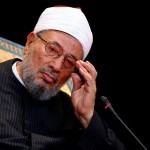
Yusuf Al Qaradawi
We – the majority that live comfortably with diversity of opinion, culture and thought – must hold them to far more rigorous account for the poison they are injecting into the Muslim world.
Malaysia positions itself as the modern moderate voice of the Muslim world. Disappointingly – since it could have led the Muslim world through an example of inclusivity – behind the scenes it is banning Shia Muslims. Their persecution in Malaysia is well-documented.
This week – despite Malaysia’s constitution guaranteeing freedom of religion, as well as being a signatory to ASEAN’s first human-rights declaration – a minister denied the ban would contravene human rights.
The ban comes at a time when sectarian hatred is escalating around the Muslim world. Worse, it flies in the face of a joint announcement in May between the former prime minister, Mahathir Mohammed, and the former Iranian president, Mohammad Khatami, that Sunnis and Shias should work to end sectarian violence.
Malaysia’s leaders are not the only ones changing their stance. Egypt’s Sheikh Yusuf Al Qaradawi in 2004 signed the historic Amman Declaration which calls for tolerance and unity in the Muslim world. Alarmingly, he is now calling Shias “heretics” and has called for Sunnis to fight Shias.
Some argue that Syria is a sectarian war. But events in Syria do not undermine my argument, they prove it. Syria’s factions fall along political lines. It is only as the conflict has progressed that it’s been couched in the language of sectarianism to further the political agenda of external parties with vested interests.
The same applies to criticisms that the Iraqi government is pursuing a sectarian agenda when in fact its agenda is political. Hizbollah, too, has been accused of stoking sectarianism as a cover for its role in Syria, although it argues that its presence has been to protect the shrines from extremists.
The silence of Muslim leaders in the face of such intolerance makes them complicit. Egypt’s Mohammed Morsi watched Shias get killed. Indonesia’s president Susilo Bambang Yudhoyono promised Shias whose homes had been burnt down they could return home for Eid, but has subsequently denied such a promise.
Positive steps towards entrenching Muslim harmony come instead from ordinary people. A philanthropist in Pakistan has opened a mosque specifically aimed at bringing together Sunni and Shia worshippers. The Muslim Council of Britain has launched a historic “code of honour” for relationships between Sunnis and Shias.
The irony of framing threats as Shia versus Sunni is that we are all in fact under the same shared threat from extremists, the ones that declare takfir (apostasy) against all those different to them and destroy sites of religious significance.
The Muslim majority must speak up and affirm that the historic respect between Sunnis and Shias is the Muslim world’s default setting. If we do not, those using their standing for their own political agendas will rapidly lead us into a miserable hellhole, and we all will be the losers.
July 11, 2013
BBC Radio 2 Moment of Reflection on Ramadan: what can I do differently?
Earlier this week, I was on BBC Radio 2 with Clare Balding. Here is my moment’s reflection about Ramadan. The text of my reflection is below, and you can listen to the audio here.
I’ll be honest with you, I’m a little bit terrified that Ramadan begins this week. The fasts are long, from 3 in the morning till almost half past nine at night, with no food or water.
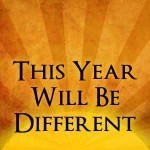 But the terror of any challenge that takes me outside my daily grind makes me excited too.
But the terror of any challenge that takes me outside my daily grind makes me excited too.
In Ramadan ordinary life is frozen as we concentrate on personal development, quiet time for reflection and spiritual growth, as well spending time with family and friends. Everything else is simply struck off the list of things to do.
The rules of Ramadan can feel radical, but sometimes that’s what we need to shake us out of the rut in which we get stuck. It offers up space and time to ask: “what can I do differently in my life?
Some people choose to fast in solidarity with Muslim friends and colleagues for a day or two. But we can all share in the spirit of Ramadan, and challenge ourselves in another way, by imagining the possibility of living life freed from the constraints we’ve tied ourselves into.
Perhaps we can all take some time to ask ourselves the question “what can I do differently in my life?” Like Ramadan, the answer could be a bit terrifying, but it could also be very exciting.
July 9, 2013
Ramadan 2013: the courage to have a dream and change your life
Ramadan begins this week: a month of physical restraint, community togetherness and spiritual immersion.
This process of reflection I’m documenting here is being echoed by Muslims everywhere at this time (and some who are not Muslim too.) The physical challenge goes hand in hand with the spiritual challenge: what will Ramadan bring me? More importantly, what will I take away from Ramadan?
It was with this in the back of my mind, that I came across a story yesterday of Imraan Adam who suffers from cerebral palsy, but who has fasted since the age of ten. He needs care to do everything, including feeding himself. This year, his local council were no longer willing to pay for the two extra hours of care he would have required to support the fasting timetable. I was very moved by this, understanding how meaningful Ramadan is to Muslims, and posted the story on Facebook and Twitter. The story was picked up by Frederic Kanoute who, incredibly, has offered to pay for the care from his foundation. It’s an awesome story, and I’m humbled by Kanoute’s contribution.
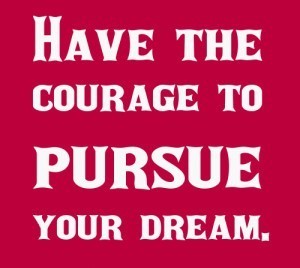 I took inspiration from Imraan Adam: he had a dream of what he wanted to achieve, and he was courageous enough to articulate it, and hope – expect possibly – that his dream would be realised. I believe it was the firmness of his dream that led to its fulfillment, after all, with true intent in our hearts, our prayers reach the Divine, and the universe always bows to the Will.
I took inspiration from Imraan Adam: he had a dream of what he wanted to achieve, and he was courageous enough to articulate it, and hope – expect possibly – that his dream would be realised. I believe it was the firmness of his dream that led to its fulfillment, after all, with true intent in our hearts, our prayers reach the Divine, and the universe always bows to the Will.
I wondered for myself: what is my dream? Can I be brave enough to articulate it, and put in place the request and actions that can realise it?
This Ramadan, the challenge is to be courageous enough to have a dream, to put it into words, and to reach Eid having taken the first steps towards it. There is no better month than Ramadan to do this: the month of radical change. All the usual constraints are already dispensed with, the barriers whether physical, spiritual or mental are dissolved. All that is left is to fill the void with a vivid picture of what we want, when all other wants of food, time and worldliness have been expunged.
What is my dream, this Ramadan? I ask myself this question, and I begin this year’s Ramadan journey.
My Ramadan wishes to you, and interesting news…
We’ve just passed the half way mark for 2013, Ramadan begins this week, and Andy Murray has just won Wimbledon. So, I thought it would be a good time to share my wishes for the month of fasting, and give you a sneak insight on what I’ve been up to so far this year and previews of what’s to come.
Offering fresh perspectives on Muslim women
My great passion, as you know, is documenting and encouraging Muslim women. I certainly don’t mince my words when I say: “Women: why our presence and opinions are important, and why modesty and anonymity must not be confused”. The Ukrainian radical feminist group Femen declared a ‘topless jihad’ supposedly supporting Muslim women, but I had once clear message for them: ‘we don’t need your topless protest and we don’t want your ‘help’
In case anyone is in doubt about improving women’s rights, I thought I’d offer a guide in my piece: “How not to marry a child bride and other helpful tips for treating women.” In a more gentle tone, I discussed “Finding the perfect partner, feminism and why men need emotional fulfilment too“.
People’s protests around the world have captured the news. One that compelled me to write was the situation in Bangladesh where I looked atwomen and minorities who are the losers in power politics in Bangladesh. And in a wider piece for Al Jazeera, I explored the politics of victimhood.
With trepidation, I published a piece in the Telegraph with the rather uproarious title “What Muslim women really want in the bedroom” looking at how sexuality is being discussed in the Muslim community. (luckily, I emerged unscathed, and the piece even triggered some great discussions.)
With delight, I got to take part in Tweet chat hosted by the International Museum of Women which is curating an online gallery of Muslim women’s art and stories called Muslima. The live discussion looked at Muslim women in the media. You can backtrack on the hashtag #MuslimaVoices (25 June) or use the Storify summary.
In a thought piece published in the Qatar Foundation’s journal I discussed that for many in the West, head coverings of any kind are evidence that Muslim women are oppressed. Not so! I say. My headscarf is a defiant expression of my choice to be a woman on my own terms.
Heart-breaking, horrific Woolwich
In May, the horrific killing took place in Woolwich, which put a pause on everything else. It’s effect was shocking, and I wrote my first instinctive thoughts on: “What does it feel like to be a Muslim Londoner today? The Woolwich killings and my raw uncensored emotions”. This was followed by a double page spread in the Observer looking at Muslim community responses to the killing. The article was featured on the Andrew Marr show, and Meera Syal picked it out as being ‘emotional and heartfelt’ (around 10 mins in). The constant need to condemn the killing as ‘not in our name’ versus the internal community criticism that denouncement was a paradoxical guilt by association prompted me to write for the think tank British Future on “The Dilemma of Condemnation: When is too much not enough?”
On being Muslim
Even just ‘looking Muslim’ is a dangerous activity these days. Words too are powerful, as I explored how Muslims must reclaim the word ’sharia’ which has become toxic. And there is a continuous need for moderate Muslim voices to be heard. And we need to think about the cultural interplay that has shaped British culture and the positive role played by its minorities, including St George.
I spoke to Clare Balding on BBC Radio 2 about what it feels like to be a British Muslim woman on 7th July, why I wrote my book, and does my husband really wear a white John Travolta suit. (40 mins into the recording).
In case you want to remind yourself how I look, you can watch me on 4thought.tv discussing aspirations in advance of the papal elections.
And finally, I’ve got a Badge of Honour being picked up by a rabidly pro-EDL website who has decided that I’m worthy of mocking. Perhaps I’ve touched a nerve?
Speaking at truly encouraging and inspiring events
In happier thoughts, I’ve had the chance to speak at some fantastic events this year. At the pioneering Khadija Conference in Stockholm, I looked at Muslim women and economic empowerment, declaring “We are the future”. I hosted the Lady Fatemah Trust gala dinner, an awesome humanitarian charity which raised nearly £200k on the night. At the Urban Muslim Woman show – an extravaganza for Muslim women going places, and some of the best Muslim fashion showcased – I encouraged Muslim women to find and express their voices, and share their brilliance with the world. And I was privileged to judge the inspiring Young Muslim Writers Awards, which encourages a new generation of writers.
On being a Mum
Yup, I’m that harried creature, the working mum. But, after struggling with merging my working self with motherhood, I’ve concluded that women don’t have to ‘lean in’ to get on. I’ve also accepted that raising a daughter is a huge challenge in a world where both being female and a person of faith are both challenges. Motherhood is as confusing as ever, as this toddler tantrum I had to deal with in public – receiving simultaneous praise and approbation for my handling – is testament.
Ogilvy Noor
In my work at Ogilvy Noor, I look at – and drive forward – trends in the world of Muslim consumers. I’m the VP for the world’s first bespoke consultancy for building brands with Muslim consumers. A growing marketplace of 1.8 billion people, with an estimated spend of $2.3 trillion, economic and political power shifting east, and the younger global Muslim demographic mean that our work with global and local brands toengage with Muslim consumers is cutting edge. I covered the World Halal Forum held in Malaysia in April, documenting that halal is not just what you eat and that what is crucial is connecting and engaging through shared values, culture and faith across industries from fashion, to cosmetics to finance. I was part of the Guardian’s live online discussion on Islamic finance and social enterprise.
The World Islamic Economic Forum announced it would be coming to London in October. Listen to my report for BBC Radio 4’s You and Yoursconsumer affairs programme on why this is significant.
In the Financial Times, I looked at what horsemeat scandal companies can learn from halal. And also in the Financial Times, in a timely manner taking us back to the subject of fasting, I wrote about Marketing for Ramadan.
And of course, Ramadan wishes…
This week, Ramadan begins for Muslims all over the world. My first thoughts were on those bad Ramadan habits we must kick. You can also listen to and read my moment of reflection on Ramadan on BBC Radio 2 with Clare Balding, asking “what can I do differently?” This year Channel 4 will be airing a season of Ramadan programming. One strand will be Ramadan diaries. I was thrilled to be included in the series, so watch out, and one day I’ll be peaking out at you through the television screen. And throughout Ramadan you can join me on Facebook to try and make the most of the month with a shared plan on how all of us together can do things differently.
My warmest wishes for a blessed Ramadan. May the long hot fasts be easy, may your aspirations be fulfilled, may you find peace in your hearts.
Shelina
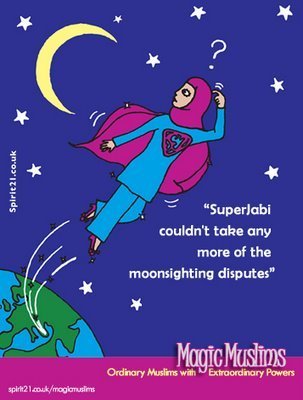
July 6, 2013
Time to kick those bad Ramadan habits
This was my weekly news column for The National from last week.
(note, Ramadan is obviously now just a few days away)
There was no morning cup of coffee for me this week; I am getting ready for Ramadan. This year, I am not ashamed to admit, I am apprehensive. In London, fasts will begin just after 2am and stretch achingly until 9.30pm.
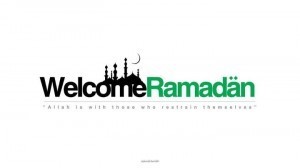 So, with the Islamic month of fasting just two weeks away, I prefer to get the caffeine withdrawal, and the accompanying headaches and lethargy, out of the way before fasting begins.
So, with the Islamic month of fasting just two weeks away, I prefer to get the caffeine withdrawal, and the accompanying headaches and lethargy, out of the way before fasting begins.
The days of Ramadan are days of blessings, community and togetherness; a spiritual feast to replace the physical one of which we are deprived. Entirely understandably, we see Ramadan through a soft-focus lens: a time of exaltation, of family togetherness, of spiritual pleasure in the face of physical pain. In forgetting the material that only weighs us down, we are uplifted by the spirit into a stratosphere that is otherwise unimaginable. There is no doubt about the spiritual merits of Ramadan that Muslims recognise and share.
But it is no disrespect to the Holy Month if we recognise that our reality of Ramadan is not quite as picture-perfect as we like to portray it. Yes, we feel uplifted, and our sense of spirituality and community is irrepressibly heightened, but we must not airbrush out our less palatable behaviour. It is time to tackle our Ramadan bad habits.
Women turn from already hardworking wives and mothers into almost full-time chefs. We have high expectations of the “wow” iftar, evening after evening. Every food we have craved over the previous 24 hours must materialise before us, and each person must have their tastes catered for. Around the world this duty falls mostly on women. What a counterintuitive result for Ramadan, that women spend more time cooking and toiling into the small hours doing food preparation. Perhaps we can reduce our expectations, or better still, all get involved in the preparations, cooking and tidying up afterwards. We need to give wives and mothers a rest.
It is one of the Muslim world’s open secrets that instead of Ramadan being a month of culinary restraint, many people actually put on weight. We are meant to be more conscious of food consumption as a sign of thankfulness, and to have empathy with those who have less, all the while shifting focus away from the body. If our body mass goes up, then we have done something terribly wrong. It is time to rethink our Ramadan strategy and dispense with a bad habit.
No doubt it is hard to maintain concentration while fasting. But laziness at work and complaints that it is impossible to engage in proper employment are, quite frankly, baffling. The point of fasting is to carry on with normal life as much as possible. Skiving off work is hardly an ethical form of behaviour. No need to moan, be slothful or sleep at work. And if you really cannot do it, then take some holiday time.
In many parts of the Muslim world, traders unscrupulously raise their prices to exploit Muslims at a time of need for staple goods. That is not very Ramadan-like in my view.
But perhaps most important of all the Ramadan bad habits is the lack of focus on our behaviour. There is no point getting hungry if all we are going to do is snap someone’s head off, get into an argument, or sit and gossip to pass the time.
Caffeine withdrawal seems relatively simple to deal with by comparison to some of the changes needed to get rid of these bad Ramadan habits. But we still have two weeks: let’s start detoxifying.
June 3, 2013
From FT.com: Marketing for Ramadan
My thought piece written on behalf of Ogilvy Noor was published this morning on FT.com
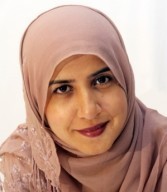 By Shelina Janmohamed of Ogilvy Noor
By Shelina Janmohamed of Ogilvy Noor
It’s less than six weeks until Ramadan, the Islamic month of fasting, and the busiest marketing time in the Muslim world. So any brand worth its salt should be paying attention to their relationship with Muslim consumers.
In majority-Muslim nations, this is the month when advertisers spend the lion’s share of their marketing budget. But brands are increasingly waking up to the opportunity to engage with minority Muslim populations too, after all consumption rises during Ramadan right across the world’s Muslim communities.
During the recession advertising spend fell and then flatlined during the Arab spring, due to uncertainty over consumer confidence. But recently, there appears to be an upturn.
During the 9th month of the Islamic calendar, from dawn to dusk for the whole month, Muslims refrain from physical intake. The evening meal called iftar (breaking of the fast) is a mini-celebration, and takes place at sunset usually with family and friends, after which Muslims can eat and drink until a final (suhoor) meal just before dawn.
This year as Ramadan falls in the summer in the northern hemisphere, fasts are particularly long, and correspondingly, the night times reserved for eating and prayer, as well as socialising and shopping, are particularly short.
Iftar is traditionally is taken at home with family and guests. It usually falls to the wife to prepare a sumptuous meal. While this is a huge task – she may spend most of the day in preparation – many women see it as a joy to feed their brood. Brands that help them in their struggle to create the perfect family meal will garner loyalty.
Increasingly popular too are restaurants and hotels offering set menus, or all you can eat buffets.
Of course as everyone rushes to get home for iftar – punctuality is crucial – traffic jams wreak havoc on the streets and tensions run high. With people stuck on the road, and the Islamic injunction to feed people the iftar, charitable organisations often hand out food on the street.
Two of the most potent symbols of Ramadan are the crescent moon and dates. The Islamic calendar is lunar, which means that a new month begins when the crescent is seen in the night sky. Dates are the recommended food for breaking fast and become ubiquitous during the month.
As a result, brands liberally sprinkle images of crescents and dates on all communications. But they should take heed that these are lazy clichés best used in moderation unless products actually have something do with crescents and dates.
Brands are up against a fight, when it comes to consumer communications. Ramadan is a noisy time, and advertising is cluttered. So here is the silver bullet you need to make your brand stand out: the job of your brand is to help Muslims to better achieve their personal, community and spiritual goals during this month.
The key is to move past glib generalisations about Ramadan to deeper insights into consumer behaviour and aspiration.
For example, it’s trite to point out that Muslims are hungry, and insensitive to advertise food during the day. But here’s an example that injects humour into the experience of counting down to iftar. And this ad and this one respect the unspoken norm of avoiding ostentatious displays of food until after dark.
Food shopping begins several weeks before Ramadan so brands should be well prepared with their marketing materials and product availability in channel.
Stockpiling, product shortages and price hikes are a commonplace occurrence. Palm oil for example, rose to a seven week high on rising demand before Ramadan.
Basic commodities can become unaffordable, forcing governments to step in to protect the consumer. Merchants exploiting this period face penalties. In the UAE the Ministry of Economy has warned traders about price rises and is encouraging traders to import produce before Ramadan.
There are traditional foods, such as Moroccan harira soup to break the fast. Drinks also vary across regions as the popular choice for iftar, examples such as Vimto in the Middle East, and Rooh Afza in the Subcontinent.
TV viewing habits change dramatically. In the Middle East a whole new slate of TV dramas – a business in itself – are aired in the evenings.
Many dramas are made for export particularly from Turkey and Egypt, but there is a growing desire for home grown programming. In the UAE, a series of Emirati-made and themed programmes will be broadcast for the first time during Ramadan.
TV scheduling encourages people to spend the entire evening at home in order to stay up to date with the soaps. So TV advertising is a popular if expensive choice for brands. But brands need to think carefully if it is cost-effective and reaches their target audience.
Social media can be effective, and reach a younger tech-savvy audience, but brands must consider in which countries and demographics are suitable. Qatar for example has one of the world’s highest penetration of smartphones, and Indonesia ranks number 4 in terms of Facebook users. But social media penetration shows great variability.
Brands can use technology cleverly to be helpful to Muslims. Ramadan apps, Ramadan portals, SMS reminders of the time to break fast and daily recipes are all examples of being a friend and support rather than a commercial opportunist during the sacred month.
Internet usage patterns change. In Saudi Arabia for example it peaks between 12 and 3am just before suhoor, reflecting the way people stay up and use the web for entertainment and connectivity. Brands need to get wise to such enormous shifts.
For the travel industry, business can be quiet during Ramadan. Austrian Airlines is cutting the number of flights.
Yet with careful planning there are opportunities. Religious tourism to Makkah and Madina is naturally popular. But there is increasing encouragement to experience Ramadan in other Muslim countries, as eating norms are respected, and there is a strong communal atmosphere. Turkish Airlines, for example, is promoting “Ramadan in Turkey.”
Ramadan packages in traditional holiday destinations such as Thailand are also appearing where the menu for the all-inclusive deals is specifically for night times, and kitchens are open for the pre-dawn meal.
Perhaps counterintuitively, shopping becomes a popular past time in Ramadan. Night markets spring up.
An online shopping portal in Malaysia brings the consumer voice to the fore: “Ramadan is a season of spirituality and togetherness; precious moments that should be spent with family and friends instead of being stuck in traffic and fighting crowds in shopping malls.”
The Muslim consumer that should be at the forefront of every brand’s planning: that Ramadan is not a commercial festival but a time of self-improvement and spiritual gain.
Brands therefore need to work hard to integrate Ramadan into a wider strategy that fits with brand values. Simply put, Ramadan engagement with Muslim consumers should not be a one off, but a chance to turbo boost an ongoing relationship.
Shelina Janmohamed is vice president of Ogilvy Noor, a specialist consultancy for building brands with Muslim consumers.
May 26, 2013
Woolwich attack: ‘Muslims are free of guilt. We had to condemn this killing’
My news feature published today in the Observer on Sunday
Woolwich attack: ‘Muslims are free of guilt. We had to condemn this killing’
A leading Islamic commentator and author reports on the swift reactions of Muslim groups to last week’s killing
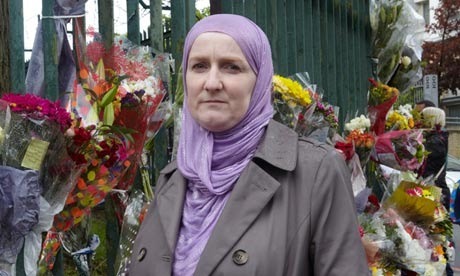
Making a public statement: Julie Siddiqi of the Islamic Society of Britain at the memorial to Lee Rigby in Woolwich last week. Photograph: Andy Hall for the Observer
After Friday prayers, at the scene of last Wednesday’s dreadful murder of Drummer Lee Rigby, Julie Siddiqi laid a bunch of flowers. “It was hard not to cry, especially when the imam raised his hands in prayer at the moment we laid the flowers,” she said afterwards.
Siddiqi is executive director of the Islamic Society of Britain, one of the few women leading a national Muslim organisation and one of a growing number of Muslims of English origin. Her horror at the Woolwich attack is palpable: “It’s echoed by the Muslims around me. There’s genuine shock and outrage. The killing has really shaken people up.”
The community’s response was swift and unambiguous. Within hours of the incident, the Muslim Council of Britain issued a condemnation. “Whether it was to do with Muslims or not, it was right to express our horror at this disgusting event,” says Harun Khan, one of the MCB’s young leaders.
“But we were conscious, too, that the suspects had used Islamic words, and these would be used to demonise Muslims. We wanted people to know what happened was wrong, and there is nothing in Islam to justify it.”
The MCB is an umbrella body for 500 mosques, schools and associations, so getting an agreed public statement out rapidly was difficult. “We knew it had to be quick and unequivocal,” says Khan. The MCB’s message was across news outlets later on Wednesday afternoon.
Social media was used alongside conventional media channels. “Our Twitter account went into overdrive,” Khan says. “We were relentless in emphasising our condemnation, and amplified the voices of our affiliates doing the same. This was not just some leaders condemning the attack, it was the entire community.” Attempting to guide young Muslims using social media away from Twitter hate wars and towards constructive dialogue was another aim of the quick response.
Siddiqi added: “The community is maturing. The response was different to 7 July. In 2005, our organisations weren’t as developed. Now there’s more confidence, Muslims are more proactive.” She partly attributes this to the fact that as the length of the community’s presence in the UK increases, connections between Muslims and wider society have become stronger.
As always, there was criticism by Muslims of Muslim organisations for being “apologists” through the condemnations. If these were two lone men acting against Islamic principles, and if the rest of Muslims are as guilt-free as Britain’s general population, asked some, why the rush to apologise? Khan rejects this argument: “All decent people condemn such events. We do too. As members of this society, it is important we reach out and clearly express our position”
Siddiqi said she felt the need to reassure wider society and protect Muslims from a possible backlash: “We knew this incident would put people at risk, so it was a duty for us to respond.”
The backdrop to their stance is the sense of a growing anti-Muslim hatred, and rise of the English Defence League.
The backlash against Muslims after the September 11 and 7 July terrorist outrages were painful for Muslims. Since then there has been a steady increase in hate crime against Muslims, amid growing poverty and the rise of far-right parties across Europe. Last week a letter to the Muslim Association of Greece threatened to “slaughter like chickens” Muslims who did not leave the country by 30 June. Many feel that a comparison can be drawn with 1930s Europe.
“Fear is widespread among Muslims,” says Fiyaz Mughal, director of theTell Mama (Measuring anti-Muslim attacks) project. There has been a very large spike in abuse, attacks and assaults on Muslims since Woolwich. “We used to receive four to eight cases every day. Since Woolwich we’ve had 162, from hijab and niqab pulling, to graffiti on mosques and cars. One man entered a mosque armed with knives. Mosques have been attacked with petrol bombs.”
It is fashionable to deny that Islamophobia exists. “Evidentially,” says Mughal, “that idea is dead. We have data that shows clear targeting of Muslims.” He dismisses the idea that this arises from a sense of Muslim victimhood: “If people stop targeting Muslims then they won’t be victims. Simple.”
If anything, Muslims under-report attacks. “They don’t want to make a fuss. They shrug it off,” says Mughal. There are other reasons,. “People worry if they report attacks it will be their own details that get recorded. They’re fearful how their data will be used.”
One positive outcome of the tragedy is a stronger sense of community. Both Siddiqi and Khan feel that Muslim organisations have worked well together, establishing stronger relationships.
The notion of standing firm with British society is strong across the board. “All the community has so much pride in being British,” says Esmat Jeraj, assistant secretary general for the Council of European Jamaats (congregations).
The mosque next door to COEJ in Streatham, south London, was used for an open-house community meeting on Thursday to discuss Woolwich. “We invited all our neighbours, local organisations, Safer Neighbourhoods teams and councillors,” says Jeraj. She points out it was the only event of its kind in Streatham. “It was the imam’s idea to organise it.”
This open, cross-community role for Muslims is something Jeraj is keen to champion. “While we are practising Muslims, we have a responsibility as British citizens. Part of that work is countering lack of knowledge about Muslims and showing that mosques have nothing to hide, that they are open to all.
“Don’t worry. We’re not wishing for the government to be abolished or sharia to be imposed. We want people to know more about Muslims. We want to play our part.”
Humour in the face of adversity is a British trait. TV presenters faced with the Islamic phrase “Allahu akbar” (al-laa-hoo), struggled valiantly to pronounce it, but mostly only managed “aloo akbar”. What did potatoes (aloo) have to do with prayer, wondered some Muslims.
In terms of the media response to the death of Lee Rigby, aside from the ethics of publishing gory images, Muslims wondered if the event was politicised because of seeming connections to their religion. In a recent chilling murder allegedly inspired by anti-Muslim hatred, a 75-year-old Muslim man in Birmingham, returning from evening prayers, was stabbed to death outside his front door. It barely made the papers, let alone the front pages. Similar accusations of double standards were levelled at media and politicians for referring immediately to the Woolwich killing as an act of terrorism, before the facts of the terrible event had become known. .
During an early news report, the BBC’s Nick Robinson described the suspects as of “Muslim appearance”. He was criticised and subsequently apologised for using a phrase “liable to be misinterpreted and to cause offence”. The apology was well-received but left some Muslims wondering about the predisposition of media and politicians to equate any criminal act conducted by a Muslim with terrorism.
Baroness Warsi, the minister for faith and communities, criticised media outlets for giving space to “nutters and idiots” such as Anjem Choudary, former head of the banned extremist organisation Al-Muhajiroun.
One of the suspects, Michael Adebolajo, was filmed with Choudary, and many believe Choudary may have influenced the alleged killer.
Khan says the MCB has been working to tackle the extreme messages Choudary is peddling. Just two weeks ago, Choudhary’s supporters are alleged to have beaten up a Muslim man on Edgware Roadin London, in a horrific case of sectarian violence. A subsequent cross-sectarian forum co-organised by MCB posed searching questions for the police as to why this man was still at large.
Siddiqi, too, says that Muslims on the ground know of the threat that Choudary represents. “One local man at Woolwich mosque told me how Al-Muhajiroun tried to take over the mosque. They worked hard to push them out. But Al-Muhajiroun got a room from the council further up the road from which they conducted their activities.”
Many Muslims feel they are tackling extremism, but that those in positions of power are letting them down. Siddiqi feels it is important to recognise that media organisations have tried hard to engage Muslim voices. “I’ve been doing interviews non-stop,” she says.
“There’s a sense of unity and purpose,” says Khan. “But also a deep understanding that there’s more to do. There is always more to do.”
Shelina Janmohamed is a news columnist and the author of Love in a Headscarf. Follow her blog at www.spirit21.co.uk or @LoveinHeadscarf
May 23, 2013
What does it feel like to be a Muslim Londoner today? The Woolwich killings and my raw uncensored emotions
Today is a very emotional and difficult day in London. Yesterday, we witnessed an event of disgusting proportions. There are so many thoughts running through my head because there are so many aspects to this brutal killing.
I feel horror at what has happened and shock that something so barbaric has taken place on our first world streets. I give my condolences for the families. I offer my admiration for those who protected the body and for the woman who engaged the killers in conversation to prevent further attack.
I feel that the killers in this case were like Breivik of Norway: lunatics who spouted what they thought was fashionable politicised rhetoric to in their minds justify something that is unjustifiable. What kind of nutter films a video of their exploits and then waits twenty minutes for the police to arrive? That suggests something that’s not right in their heads, a delusional exhibitionist swagger detached from reality. How and why? That I don’t know.
My brain cannot reconcile how they can use the words ‘Allahu Akber’ during this deed, (‘God is greater’) because they will know that God is greater than their base act which is not based on justice and Islam, but that Islam does not permit vigilantism, nor murder.
And this is, after all, murder. Murder of the most horrific kind. It’s the most extreme repulsive kind of gangsterism. And yet I ask myself the honest and genuine question, is this labelled terrorism because the murderers were Muslim? Or is this genuine terrorism? I don’t think we know the answer to this yet. How can we assert either way at this time?
And so I also feel angry that the exhibitionist barbarity of two individuals has been widened out to a bigger trend of terrorism before we know the full facts.
I’m also angry, and scared at the reprisal attacks that have already been happening on Muslims. Three mosques already have been attacked.
This morning as I stepped outside I felt scared, fearful of how I was perceived and what people would be thinking. I’m worried for my safety, for the security of my family. I had a hollow laugh at myself as I wondered if I live in a ‘nice’ area, safe from attack. But the racism and anti-Muslim hatred that has exploded in our midst since yesterday means I am under no illusions about how fragile we all are. What else should I think when I keep seeing repeated “Hitler killed the wrong people, he should have killed Muslims.”
I don’t want to have to keep issuing condemnations and explaining this is not Islam, this is not what it means to be Muslim, but there is little choice given the inflammatory context. The EDL took to the streets in Woolwich yesterday claiming ‘enough is enough’, and brought fear to a people already traumatized. And Twitter is filled with alarming expressions of hatred and threats against Muslims.
I don’t make proactive statements of condemnation as an apology: I have nothing to apologise for. I don’t make statements of condemnation because I am guilty or subservient. None of these are true, and I will not tolerate such suggestions.
I don’t make these statements for the EDL and other hate groups. I make them because in this case the killers used words dear to Muslims which we use in prayer, and these words must be respected and not defiled by inhumanity. But also, our wider society needs Muslims to reach out too, and I feel that the words from Muslims across the board are making a difference.
I don’t know how this story will unfold, but I pray that the consequences for all the people of Britain will not be a descent into hatred and division. This is what the killers wanted. This is what the EDL wants. But this is not what right-thinking human beings want, and will never be accepted by those with hearts and humanity.
I stand with my British brothers and sisters at this time of public crisis. I stand with hope for a Britain of togetherness.

I created this image about 7 years ago to capture the British Muslim experience. Since then it has been borrowed and re-used by many (I've even seen it already used to protest the Woolwich killings elsewhere). If you wish to use it, please go ahead, but please leave the credit to spirit21.
May 6, 2013
Women: why our presence and opinions are important, and why modesty and anonymity must not be confused
This is my weekly column published on Saturday 4th May in The National
Modesty and anonymity are often confused. Modesty is important, but too often the enforcement of modesty is used as an excuse to impose invisibility and silence on women.
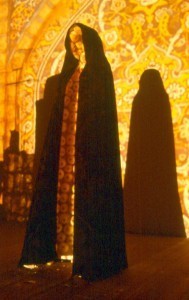 Social norms may dictate that a woman should not say, do or look outside the status quo and should not take a public stand about a public subject. Doing so, she is told, will affect her reputation, and therefore her prospects of marriage and social status. In short, women are too often expected to blend into the background, blurred into invisibility.
Social norms may dictate that a woman should not say, do or look outside the status quo and should not take a public stand about a public subject. Doing so, she is told, will affect her reputation, and therefore her prospects of marriage and social status. In short, women are too often expected to blend into the background, blurred into invisibility.
In many public gatherings (private ones are a different matter), women are not recorded as being present, as this is not considered proper by many men, and also by some women.
But why is it not proper for the record to show clearly that women were present at a given event? Simply being in a photo or video is surely not immodest.
Whatever reasons are given to justify this exclusion of women, the outcome is that the record indicates that women were anonymous, invisible or absent.
But the presence of women in a nation’s shared consciousness makes it natural for women to be part of its present, and to share in its future.
This normalisation of women in the public space, politics and power is crucial, because it means that women sharing in authority and public life is something we have come to accept; in fact that we don’t merely accept it, but expect it as well.
For me, this is also the reason why quotas and targets for women in leadership positions are so vital: to make it normal for us to see women as leaders. Women need role models to serve as springboards for their own aspirations. Men, too, should come to see powerful and influential women in every walk of life as totally normal.
We can’t change the past, but we can rediscover it. We must do more to raise the status of those women who already hold significant places place in our collective history. And when the historical record appears at first glance to be bare of female figures, we must investigate more deeply. No history is ever devoid of women; women are integral to all societies and eras. We must also ensure that women are seen and heard as a normal part of public life today. This will leave a strong legacy of equality for the men and women of the future.
If you are a woman and you feel shy about having your picture taken in a public meeting, or if you don’t want it known you were there, remember this: people will look at the record of the event and see no women.
For every subsequent meeting, then, this absence of women will be a template for how meetings should be. Just as we look back at history and find a blank where women should have been, so will future generations find that we have failed in the same way.
This is not about the fame or glory of individual women, but we shouldn’t make ourselves invisible under the misguided notion that it is shameful to be seen and known. We have a rightful place in our societies. Modesty does not mean invisibility, because women can be at once modest and visible, humble and powerful. We need to put aside anonymity, shyness and timidity to ensure that everyone knows that women are here, for themselves and for the good of society.
We must be present in our societies. We must make ourselves and our opinions known. This is important for us, and for our future generations.
Shelina Zahra Janmohamed is the author of Love in a Headscarf and blogs at www.spirit21.co.uk
April 26, 2013
St George: the poster boy for multiculturalism, and why great nations embrace their minorities
This my weekly column published in The National
White flags with red crosses have been fluttering across England this week, as the nation celebrated the day of its patron, Saint George.
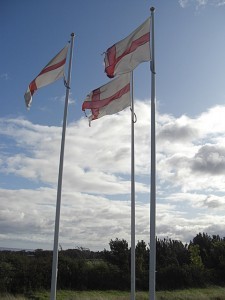 Surprisingly, he was not English, but rather Greek or possibly Turkish. He served in the Roman army, lived in Palestine and has been adopted by many countries including England, Egypt, Ethiopia and Iraq. He was killed in 303 AD by the Roman emperor Diocletian for refusing to deny his Christian faith and protesting the persecution of Christians.
Surprisingly, he was not English, but rather Greek or possibly Turkish. He served in the Roman army, lived in Palestine and has been adopted by many countries including England, Egypt, Ethiopia and Iraq. He was killed in 303 AD by the Roman emperor Diocletian for refusing to deny his Christian faith and protesting the persecution of Christians.
Legends from the 11th century onwards recount that he killed a dragon. One of the more famous legends, from the 15th century, tells of how he rescued a princess from a dragon terrorising a village, after which the entire village adopted Christianity.
St George’s life is a story of multiculturalism, migration, social fluidity and the transcendence of human values. Yet bizarrely, he has been adopted by the far right as a symbol of “purity” of the white English.
Poor St George, who died to oppose discrimination and persecution of the “other” is the unwilling poster boy for racism and hatred.
This year, the Christian-Muslim Forum, a London-based charitable organisation aimed at promoting interfaith dialogue, is reclaiming St George to reinstate him as a symbol of unity. Like St George’s adoption into English culture, the forum seeks to address the Islamophobia that is growing in English society with a campaign that suggests that another newcomer to English culture should be embraced. They suggest that the “hijab should be as British as bangers and mash”.
It takes admirable confidence from a nation to embrace the cultures and symbols of a minority, whether those symbols are food embraced by the masses, or icons explicitly adopted by the machinery of state, like St George. We must admire the fact that they are not insecure in their own identity.
It is precisely the adoption of outside influences into a country or state, and their contribution to its flavour, that make that culture unique and give it a powerful magnetism. The way Muslim civilisations embraced the cultures they came into contact with offers an example.
It must be difficult to be a Muslim this week after the tragic events of the Boston Marathon and the suspicion cast by right-wing commentators on Muslims. Meanwhile, in Myanmar, Rohingya Muslims continue to be killed. Figures of peace who are part of the majority, like Aung Sang Suu Kyi, are mealy mouthed about the atrocities rather than clearly condemning the massacres of the minority.
Muslim nations too have responsibilities to care for their minorities. Egypt must work to ensure its Coptic Christian minority is given its due place in the new national structures. In Pakistan and Bangladesh, to name just two other troubled states, minority Hindus, Christians and Buddhists must be protected and embraced.
When a nation treats its minorities well, and offers them protection, that is the unquestionable mark of a great nation.
Shelina Zahra Janmohamed's Blog
- Shelina Zahra Janmohamed's profile
- 175 followers




